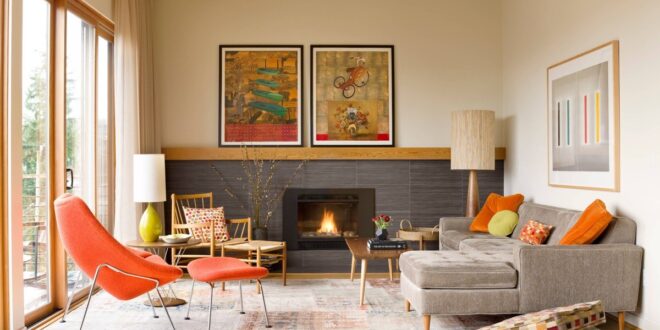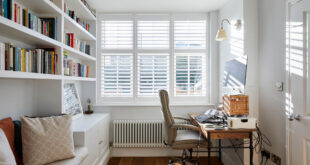/* Basic styling for readability */
body { font-family: Arial, sans-serif; line-height: 1.6; }
h2 { margin-top: 2em; }
h3 { margin-top: 1.5em; }
p { margin-bottom: 1em; }
ul { margin-bottom: 1em; padding-left: 20px; }
li { margin-bottom: 0.5em; }
img { max-width: 100%; height: auto; }
Unlocking the Enduring Appeal of Mid-Century Modern Living Rooms
The Mid-Century Modern aesthetic. Just hearing the phrase conjures images of sleek furniture, clean lines, and a warm, inviting space that feels both retro and refreshingly contemporary. It’s a style that has captivated homeowners for decades, and for good reason. It’s not just a trend; it’s a design philosophy that prioritizes functionality, simplicity, and a connection to nature. But how do you achieve that coveted Mid-Century Modern look in your own living room? Let’s dive in, exploring the key elements and providing actionable tips to transform your space into a stylish haven.
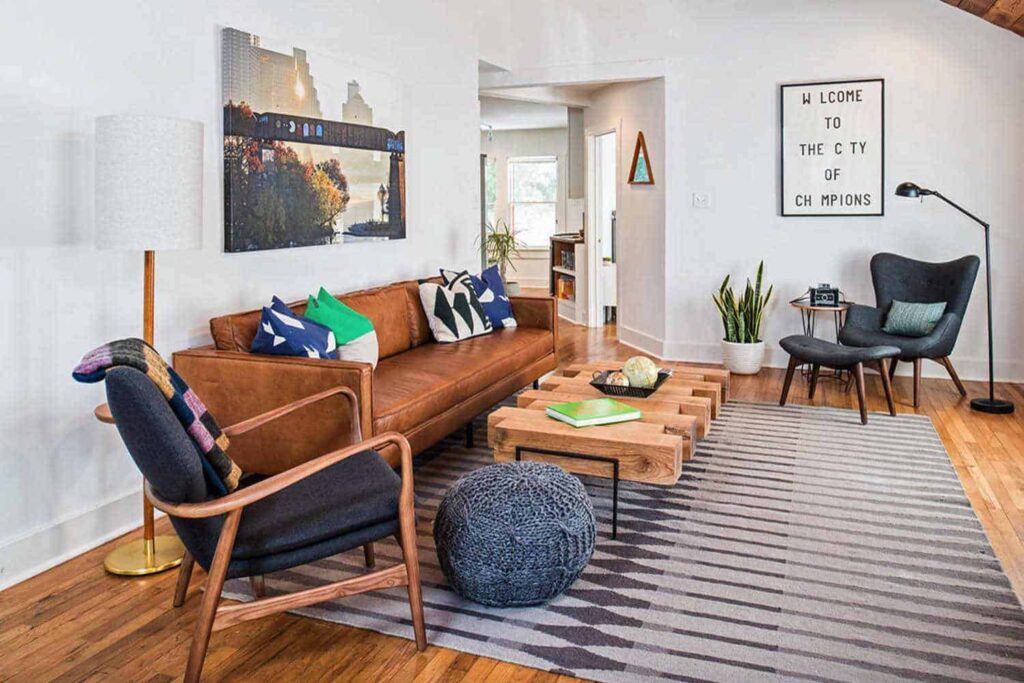
What Exactly is Mid-Century Modern? A Brief History
Before we start decorating, it’s important to understand the roots of this iconic style. Mid-Century Modern design emerged in the post-World War II era (roughly from the 1940s to the 1960s). It was a response to the ornate and often cluttered styles of previous generations. Designers sought to create furniture and interiors that were affordable, functional, and visually appealing for the modern family. Key influences included the Bauhaus movement, Scandinavian design, and the abundance of new materials and technologies available after the war.
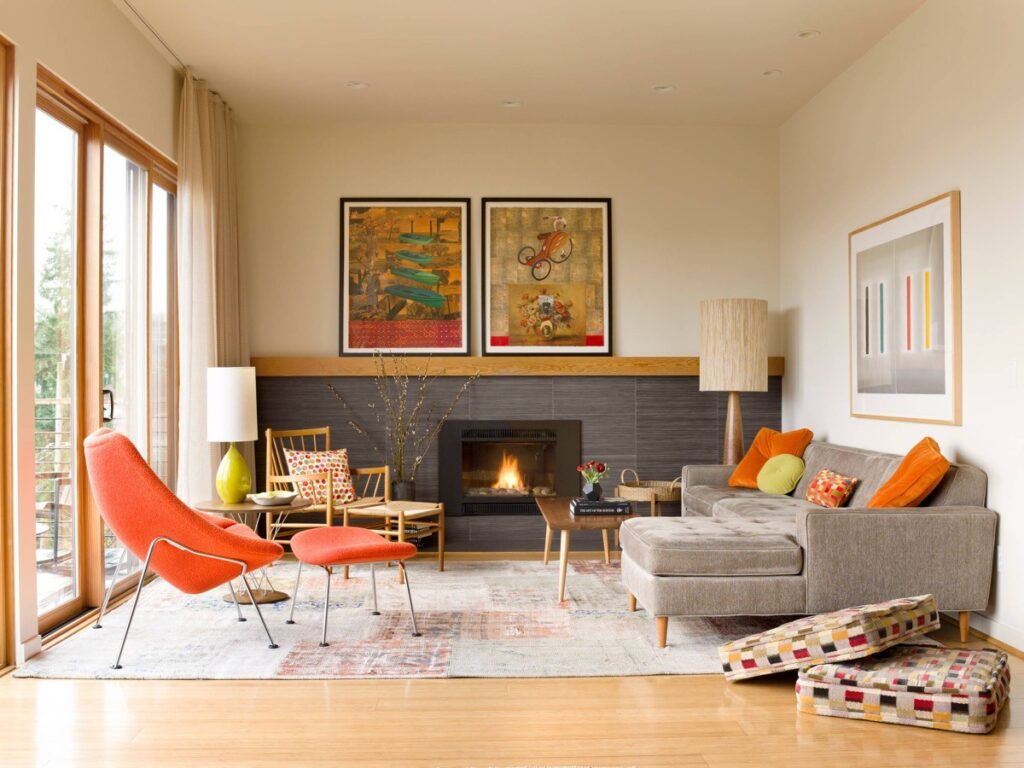
Think of names like Charles and Ray Eames, George Nelson, and Eero Saarinen. These visionaries pioneered new forms and materials, creating furniture that was both beautiful and practical. Their designs, often characterized by molded plywood, fiberglass, and organic shapes, are still highly sought after today.

Key Elements of a Mid-Century Modern Living Room
Creating a successful Mid-Century Modern living room involves more than just buying a few retro-inspired pieces. It’s about understanding the core principles and applying them thoughtfully to your space. Here are the key elements to consider:
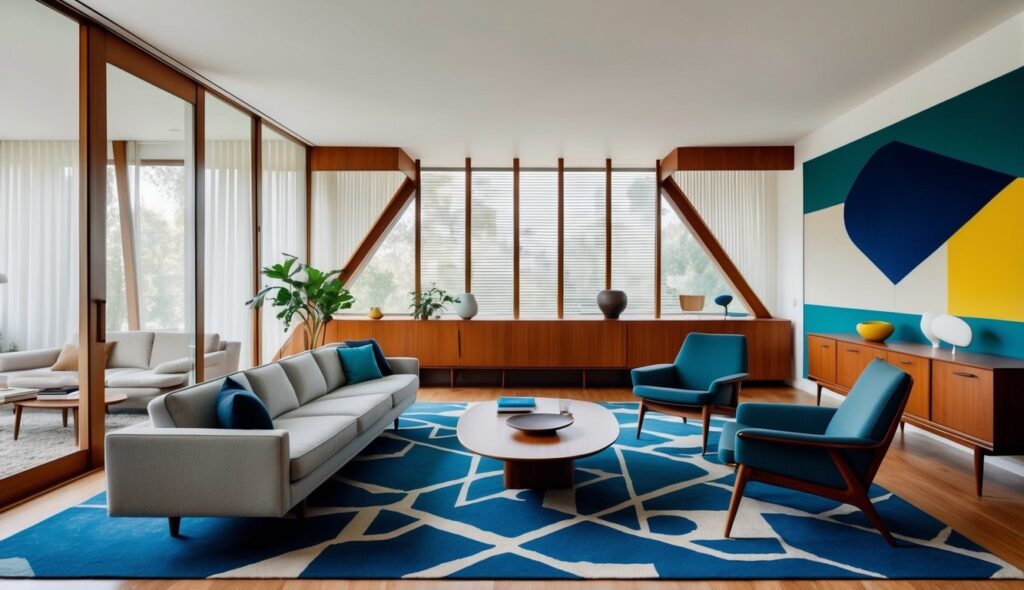
1. Clean Lines and Simple Silhouettes
This is perhaps the most defining characteristic of Mid-Century Modern design. Furniture should have clean, uncluttered lines and simple, geometric shapes. Avoid overly ornate details or excessive embellishments. Think about sofas with straight backs, tapered legs, and minimal cushioning. Chairs with molded plastic or bentwood frames are also excellent choices.
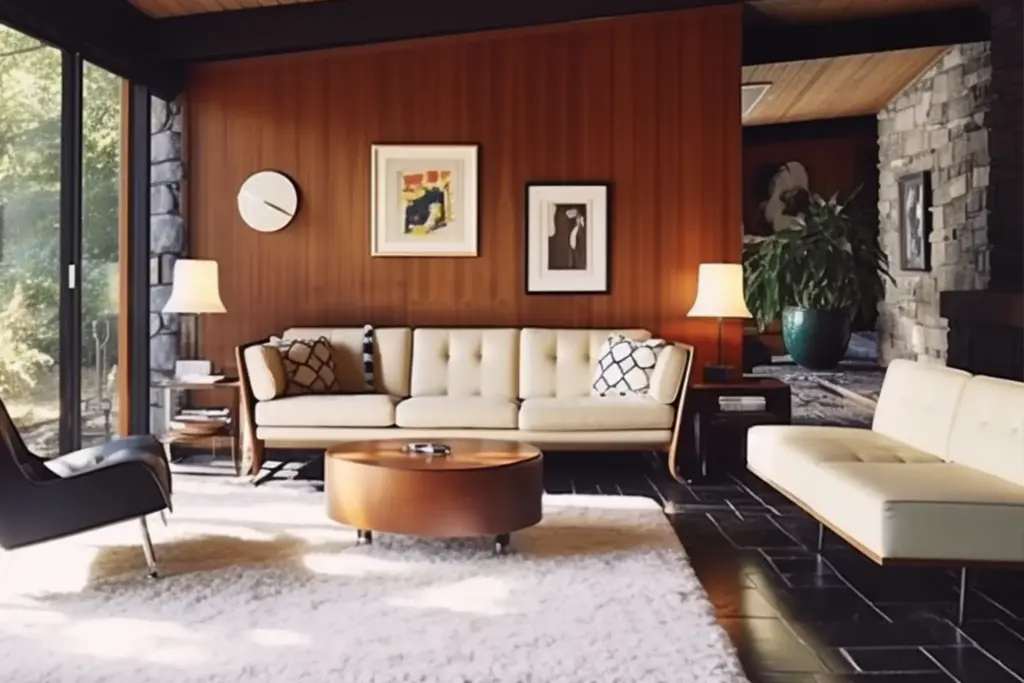
Look for pieces that are low to the ground, creating a sense of spaciousness and openness. This low profile is a hallmark of the style and contributes to its relaxed and inviting atmosphere.
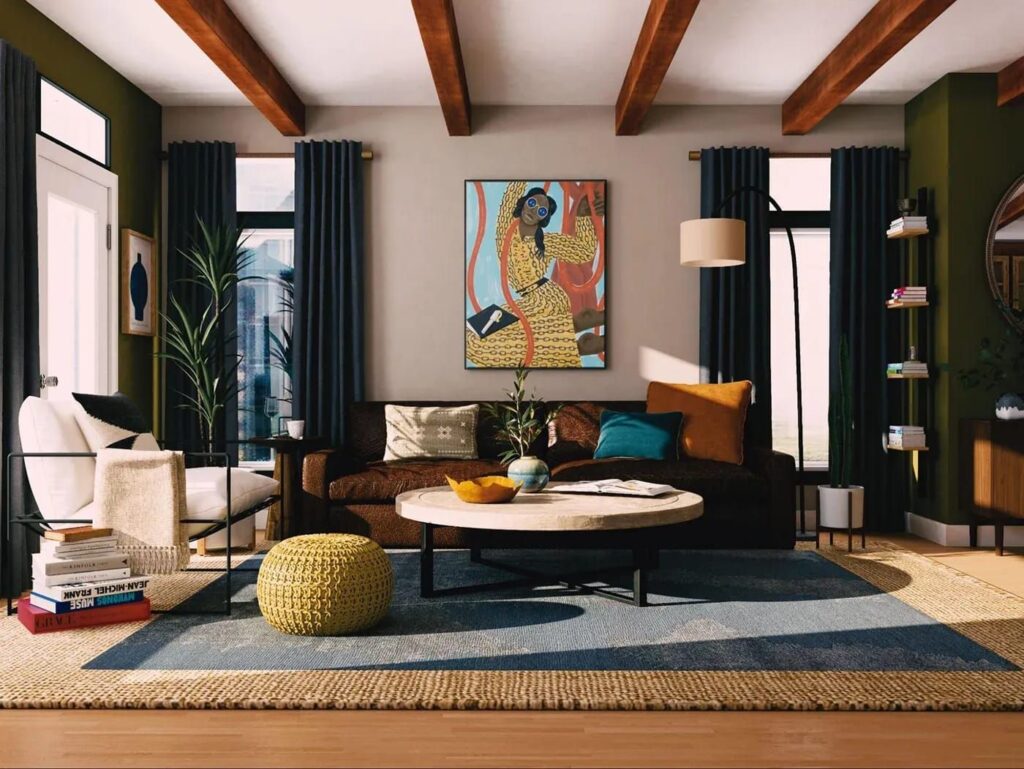
2. Natural Materials: Wood, Metal, and More
Mid-Century Modern design celebrates the beauty of natural materials. Wood is a dominant element, often used for furniture frames, cabinetry, and flooring. Look for warm-toned woods like walnut, teak, and oak. Metal accents, such as brass or chrome legs, add a touch of sophistication and contrast to the wood tones.
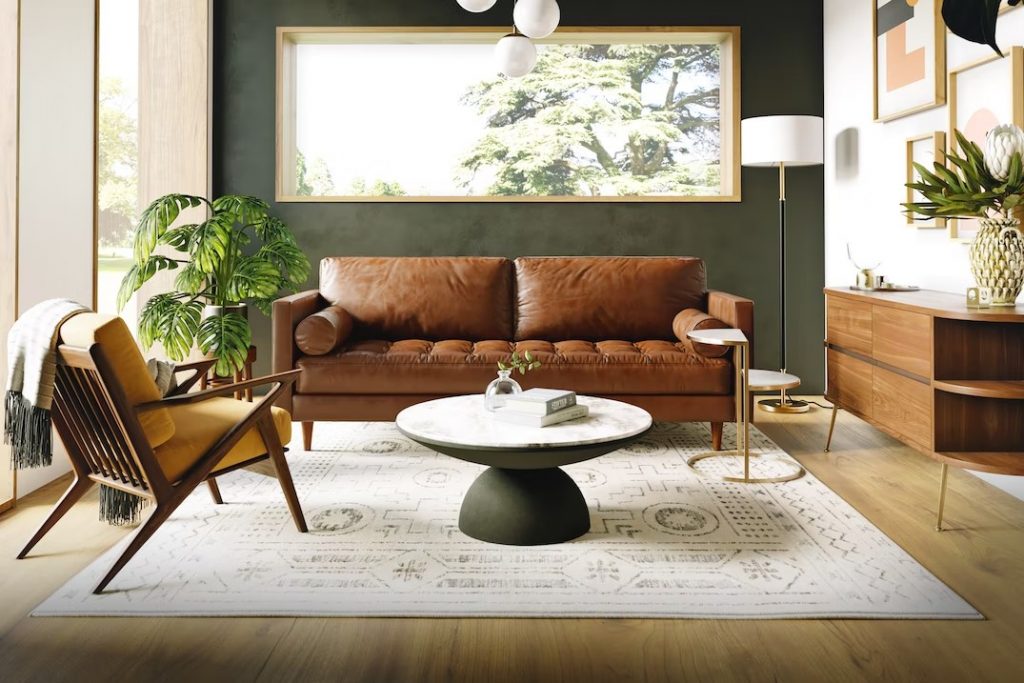
Other natural materials like leather, wool, and cotton are also important for upholstery and textiles. These materials add texture and warmth to the space, creating a comfortable and inviting atmosphere.
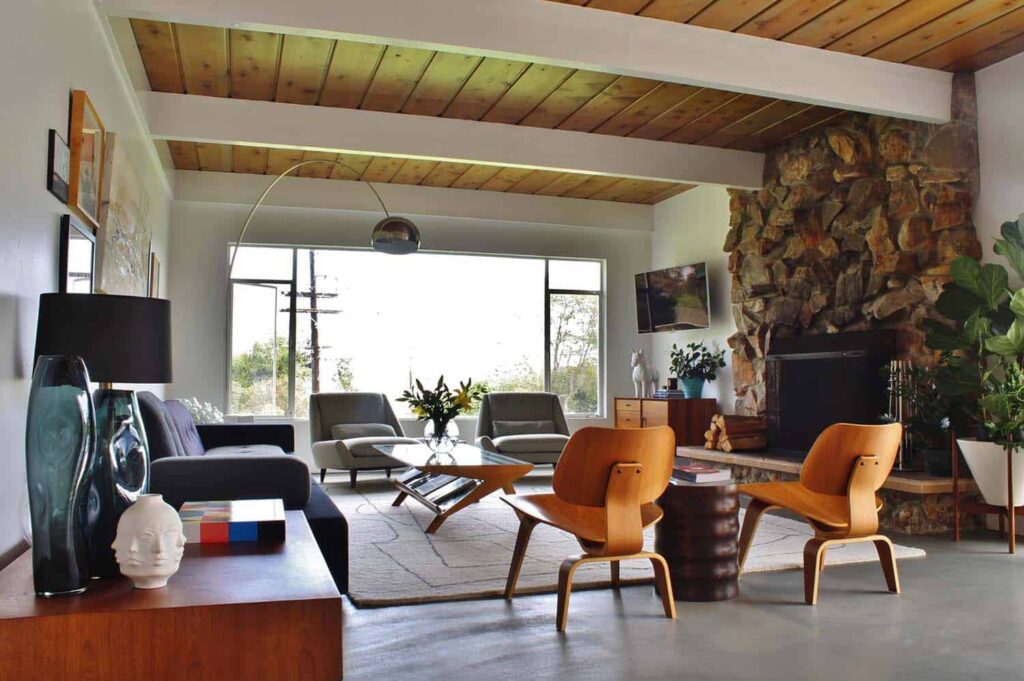
3. A Neutral Color Palette with Pops of Color
The foundation of a Mid-Century Modern living room is typically a neutral color palette. Think of warm grays, off-whites, and earthy tones. These colors create a calming backdrop that allows the furniture and accessories to stand out. However, don’t be afraid to introduce pops of color through accent pieces. Mustard yellow, avocado green, burnt orange, and turquoise are all popular choices that evoke the era.
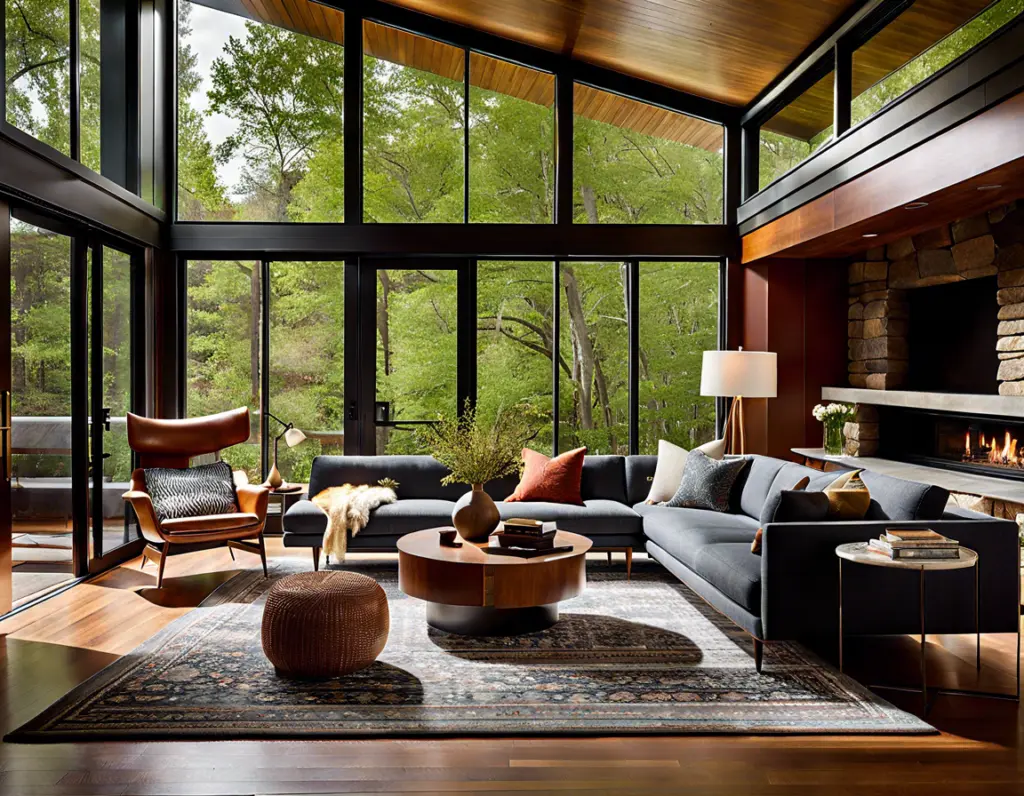
Consider using colorful throw pillows, artwork, or area rugs to add vibrancy and personality to the space. Be mindful of the overall balance, ensuring that the pops of color complement the neutral background rather than overpowering it.

4. Functionality and Practicality
Mid-Century Modern design is all about functionality. Furniture should be not only beautiful but also practical and comfortable. Choose pieces that serve a purpose and that you will actually use. Avoid clutter and unnecessary ornamentation. Every item in the room should have a reason for being there.
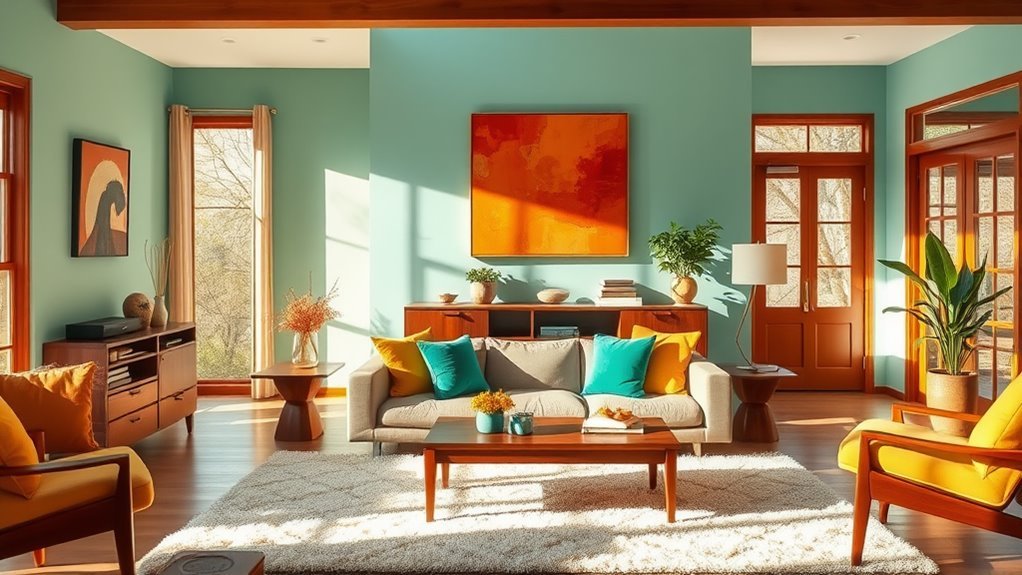
Consider incorporating storage solutions that are both stylish and functional. Credenzas, sideboards, and shelving units can provide ample storage space while also adding to the overall aesthetic of the room.
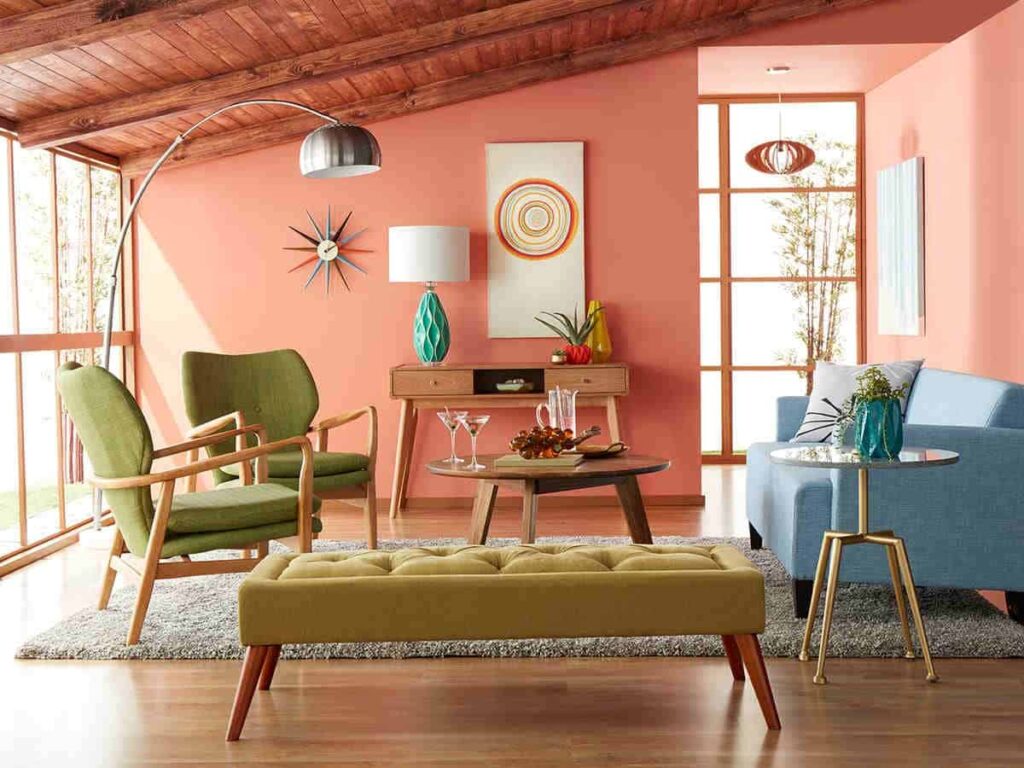
5. Organic Shapes and Geometric Patterns
While clean lines are important, Mid-Century Modern design also embraces organic shapes and geometric patterns. Think of kidney-shaped coffee tables, tulip chairs, and abstract artwork. These elements add visual interest and prevent the space from feeling too sterile or rigid.
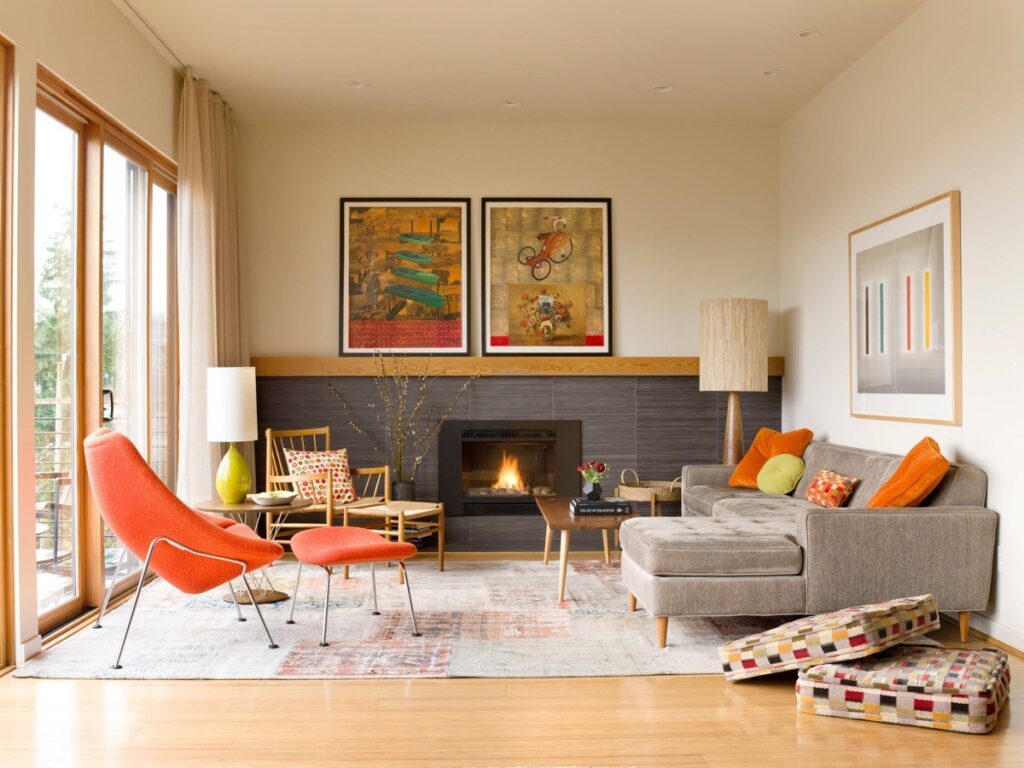
Geometric patterns can be incorporated through rugs, wallpaper, or textiles. Look for patterns that are simple and graphic, such as stripes, chevrons, or abstract shapes. Be careful not to overdo it with patterns, as too much can create a cluttered and overwhelming feeling.

6. Natural Light and Open Spaces
Mid-Century Modern design emphasizes the importance of natural light and open spaces. Maximize the amount of natural light in your living room by using sheer curtains or blinds that allow light to filter through. Avoid heavy drapes that block out the light.
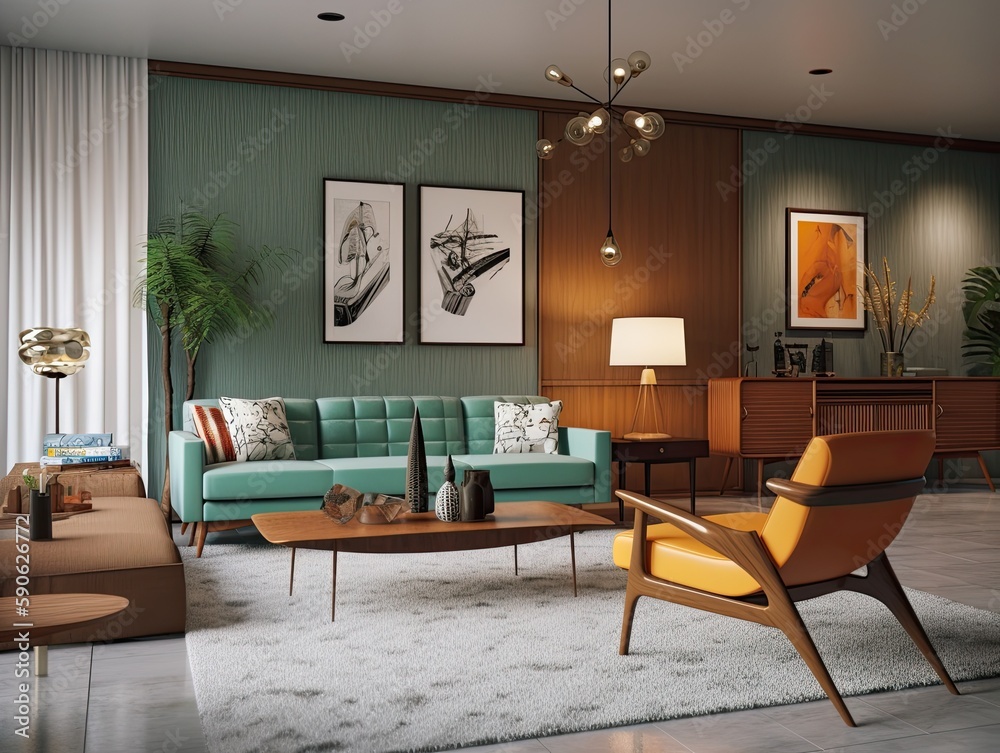
Arrange furniture in a way that promotes conversation and flow. Avoid blocking windows or doorways with furniture. Consider using mirrors to reflect light and create the illusion of more space.
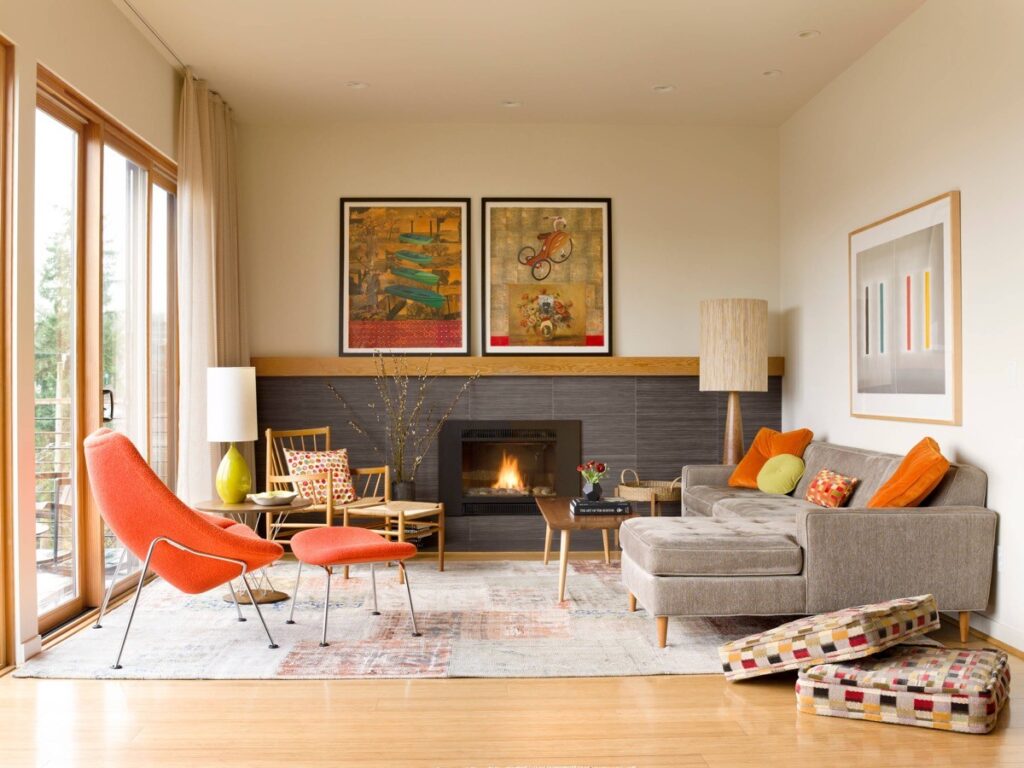
7. Minimalist Decor and Accessories
When it comes to decor and accessories, less is definitely more in Mid-Century Modern design. Avoid clutter and unnecessary ornamentation. Choose a few carefully selected pieces that reflect your personal style and complement the overall aesthetic of the room.

Consider incorporating plants, artwork, and sculptural objects. Plants add a touch of nature and freshness to the space. Artwork can add personality and visual interest. Sculptural objects can serve as focal points and conversation starters.
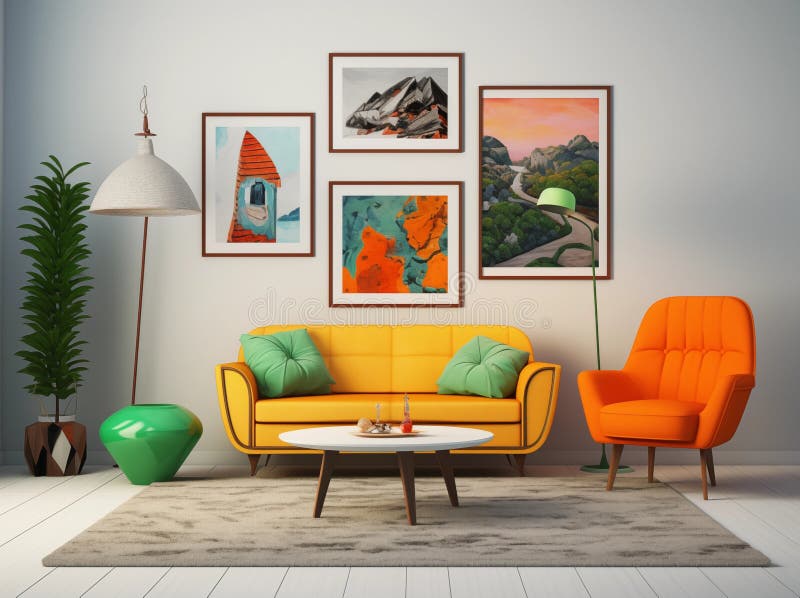
Bringing It All Together: Creating Your Mid-Century Modern Living Room
Now that we’ve covered the key elements of a Mid-Century Modern living room, let’s talk about how to put it all together. Here’s a step-by-step guide to help you transform your space:
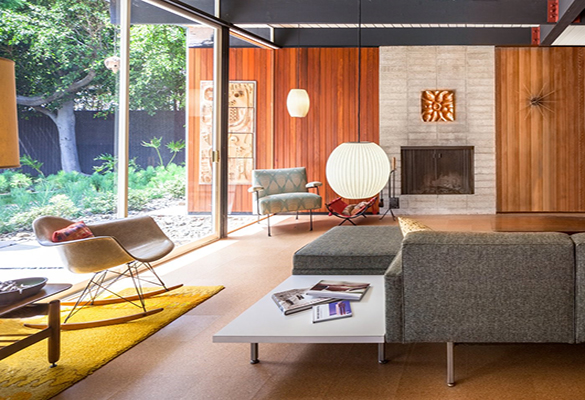
1. Start with a Plan
Before you start buying furniture or painting walls, take some time to plan out your living room design. Consider the size and shape of your room, the amount of natural light you have, and your personal style preferences. Create a mood board or sketch to visualize your ideas.

Think about the functionality of your living room. How do you plan to use the space? Do you need a comfortable seating area for watching TV? A reading nook? A space for entertaining guests?
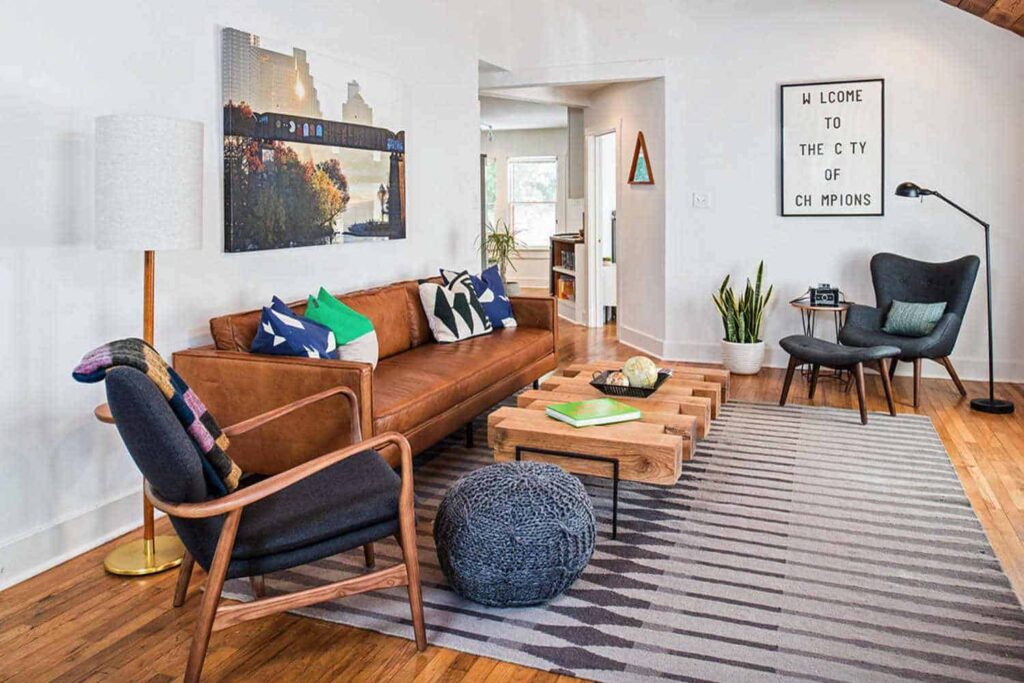
2. Choose Your Furniture Wisely
Furniture is the foundation of any living room design. Choose pieces that are well-made, comfortable, and in line with the Mid-Century Modern aesthetic. Look for sofas, chairs, and tables with clean lines, simple silhouettes, and natural materials.
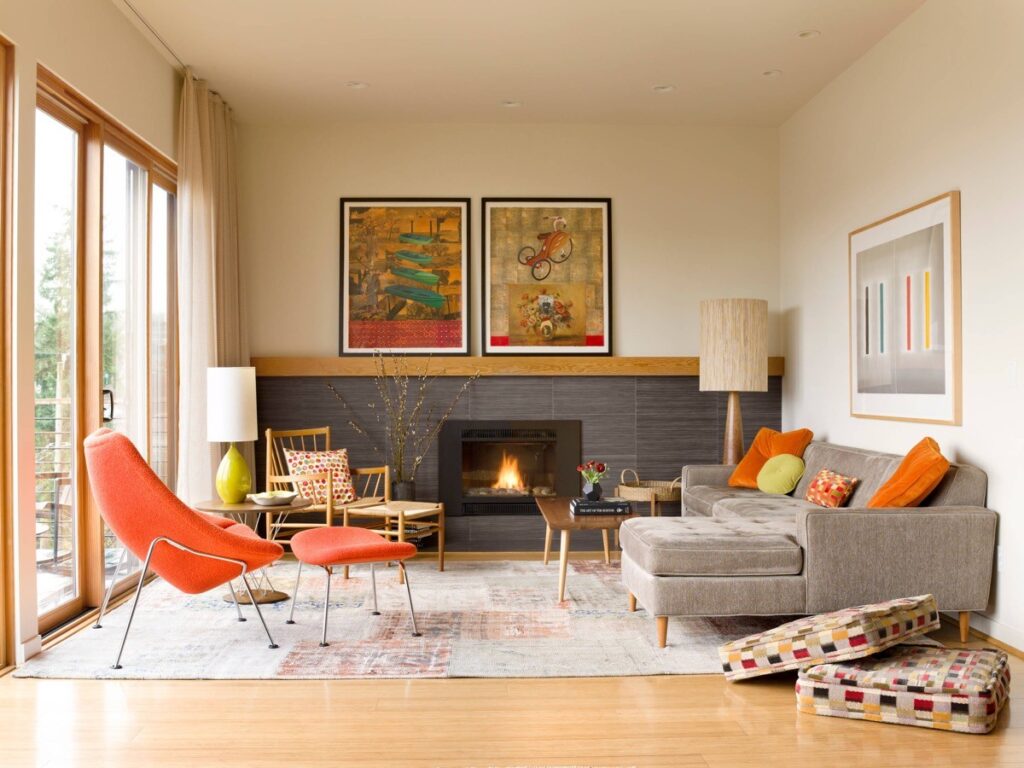
Consider investing in a few key pieces that will define the style of your living room. A classic Mid-Century Modern sofa or chair can make a big impact. Don’t be afraid to mix and match different pieces, but make sure they complement each other in terms of style and color.
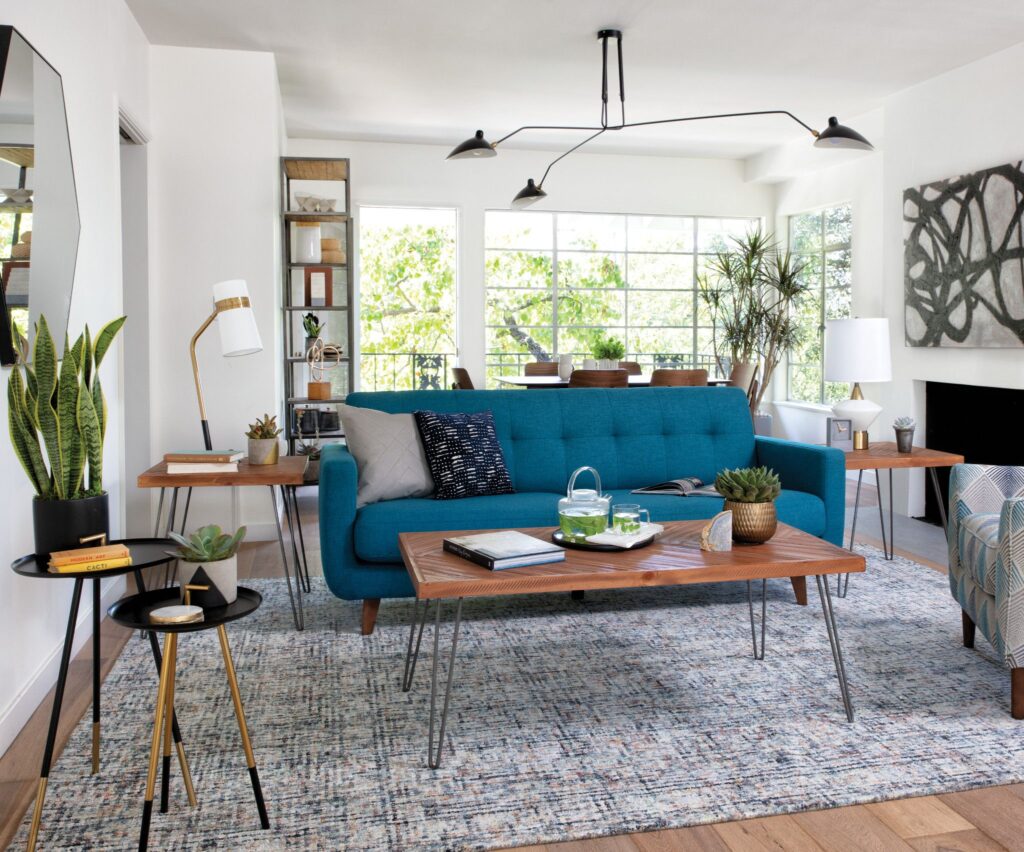
3. Select Your Color Palette
As mentioned earlier, a neutral color palette is essential for a Mid-Century Modern living room. Choose a warm gray, off-white, or earthy tone for your walls. Then, add pops of color through accent pieces like throw pillows, artwork, or area rugs.
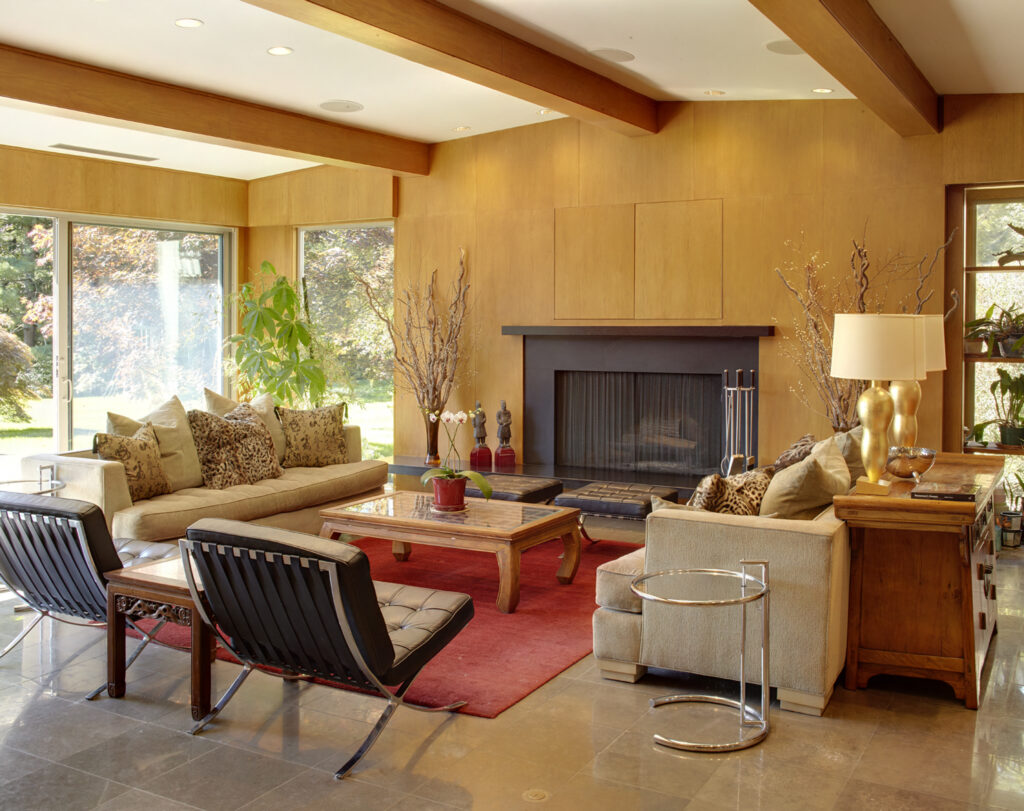
Consider using a color wheel to help you choose colors that complement each other. Analogous colors (colors that are next to each other on the color wheel) create a harmonious and calming effect. Complementary colors (colors that are opposite each other on the color wheel) create a bold and dynamic effect.
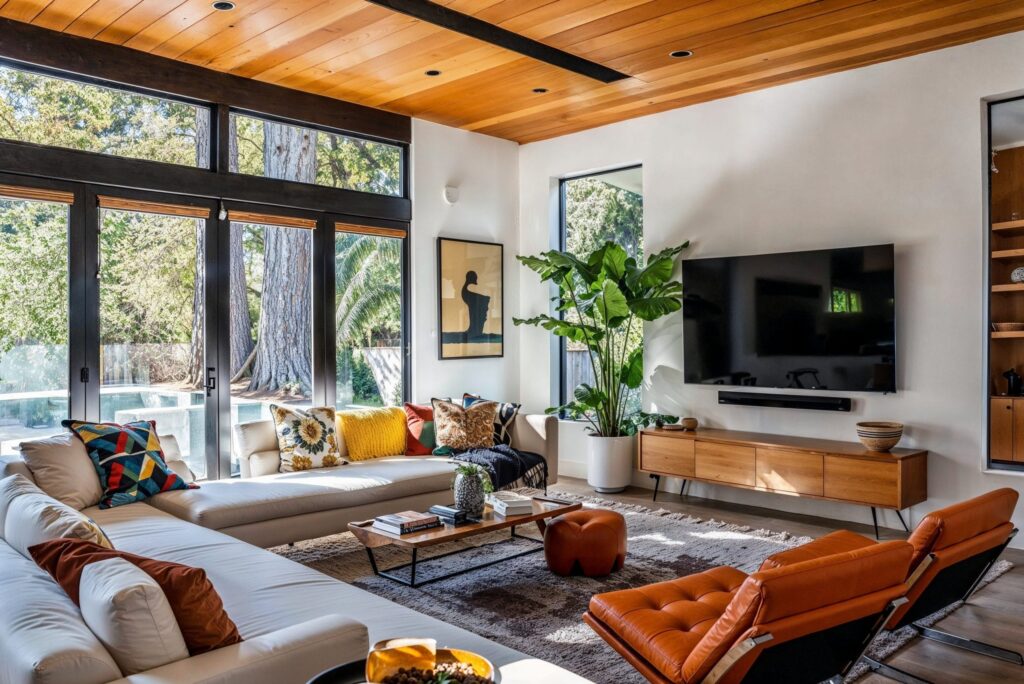
4. Incorporate Natural Materials
Natural materials are a key element of Mid-Century Modern design. Incorporate wood, metal, leather, and wool into your living room design. Use wood for furniture frames, cabinetry, and flooring. Use metal for accents like legs or hardware. Use leather and wool for upholstery and textiles.

Consider adding a wooden coffee table or a leather armchair to your living room. These pieces will add warmth and texture to the space.
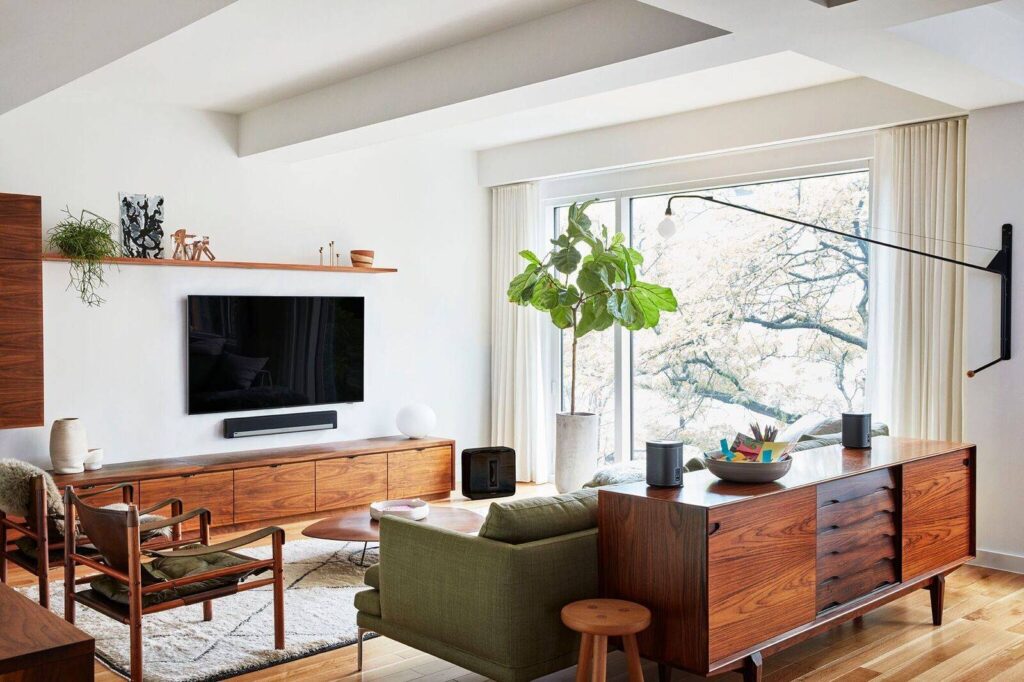
5. Add a Touch of Greenery
Plants are a great way to add a touch of nature and freshness to your living room. Choose plants that are easy to care for and that complement the Mid-Century Modern aesthetic. Snake plants, spider plants, and fiddle-leaf figs are all excellent choices.
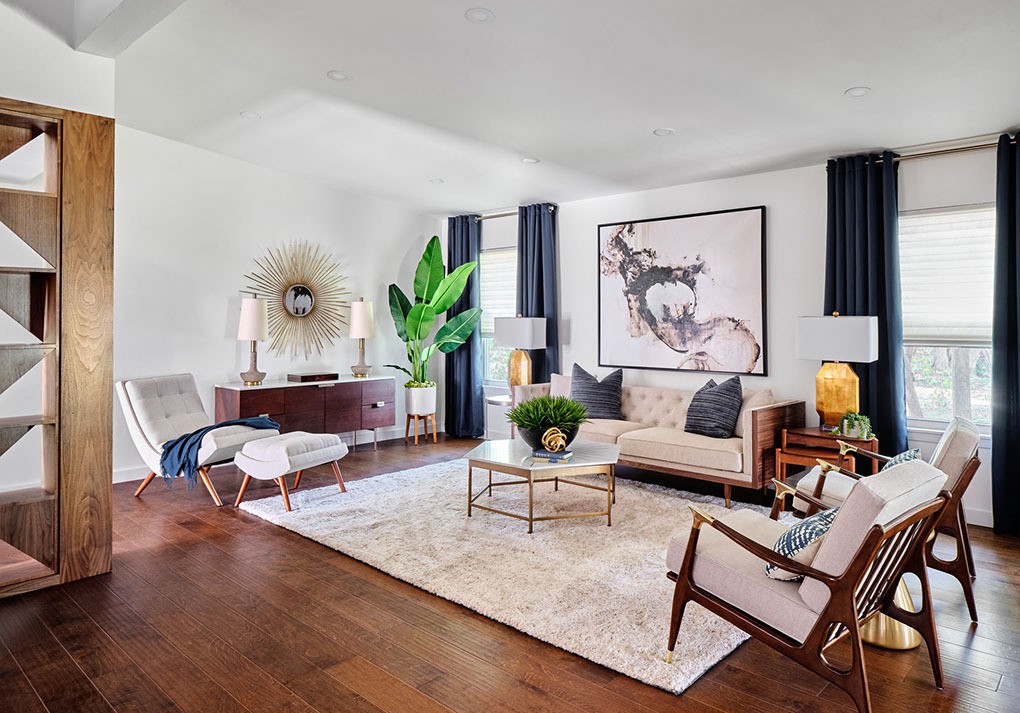
Place plants in strategic locations throughout the room to add visual interest and purify the air. Consider using planters that are in line with the Mid-Century Modern style, such as ceramic pots or wooden stands.
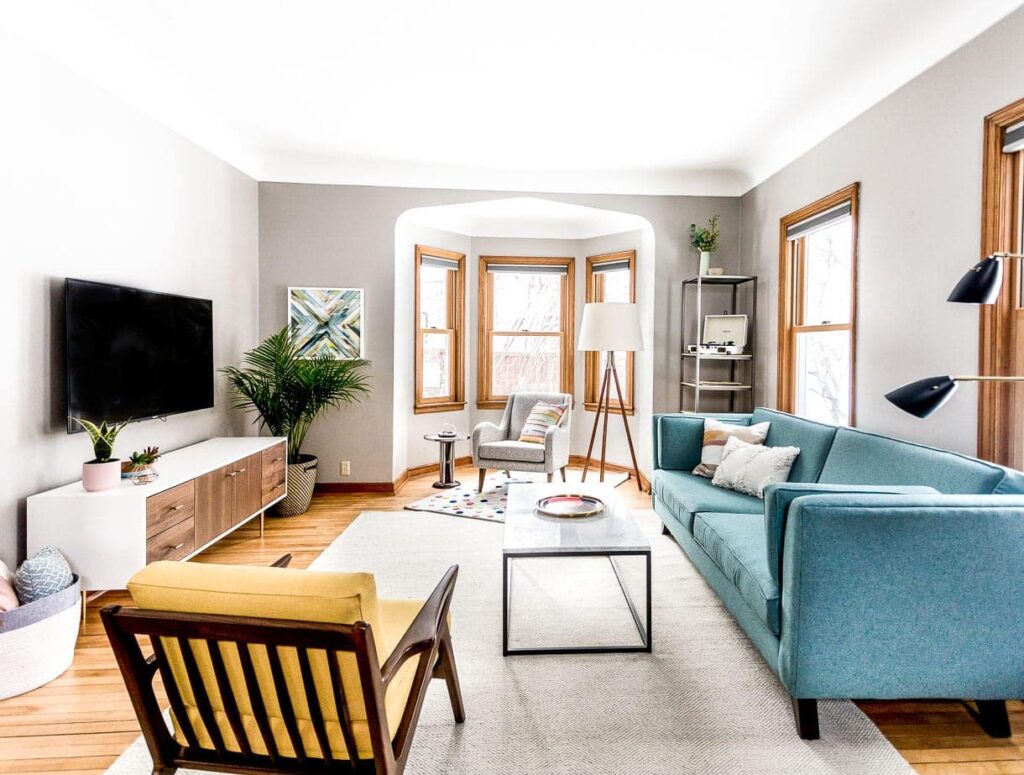
6. Accessorize with Purpose
When it comes to accessories, less is more in Mid-Century Modern design. Choose a few carefully selected pieces that reflect your personal style and complement the overall aesthetic of the room. Avoid clutter and unnecessary ornamentation.

Consider incorporating artwork, sculptural objects, and vintage finds. Artwork can add personality and visual interest. Sculptural objects can serve as focal points and conversation starters. Vintage finds can add a touch of nostalgia and character to the space.
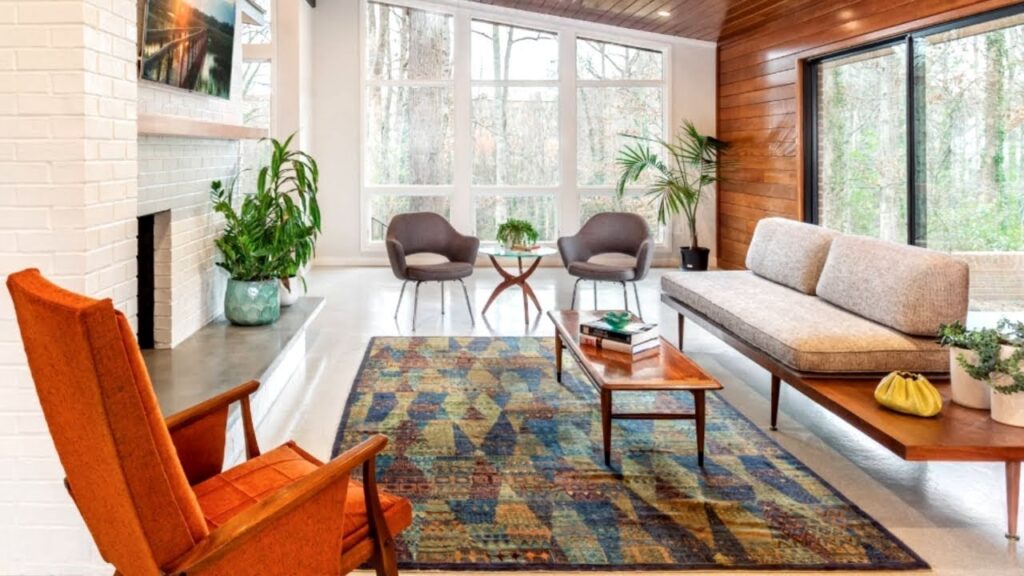
Mid-Century Modern Living Room Ideas: Inspiration for Your Space
Need some inspiration to get started? Here are a few Mid-Century Modern living room ideas to spark your creativity:
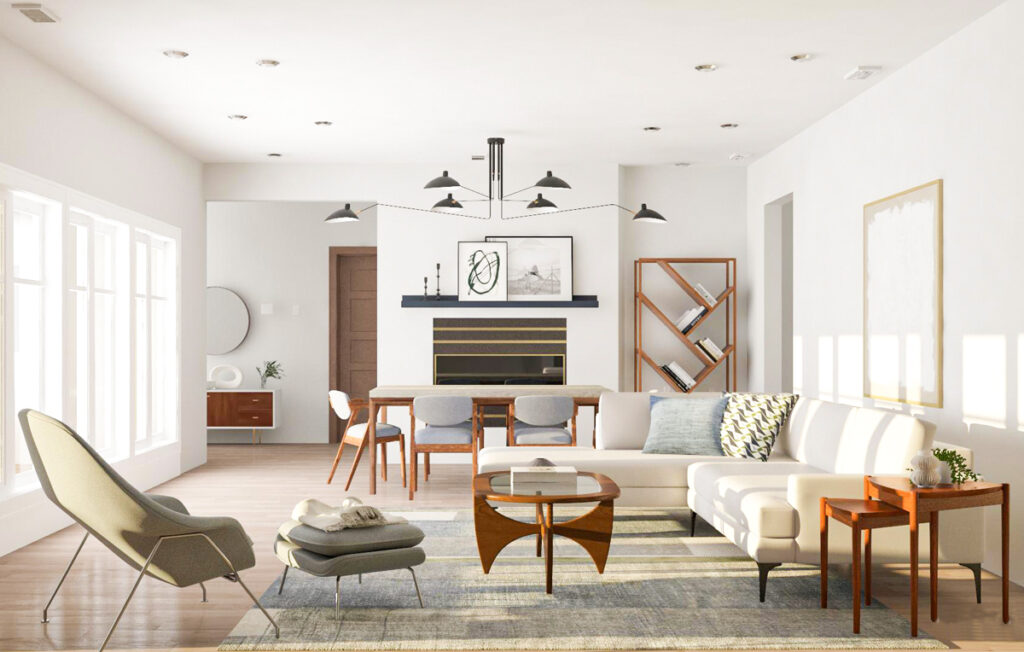
- The Minimalist Haven: Focus on clean lines, neutral colors, and minimal accessories. A low-slung sofa, a simple coffee table, and a few well-chosen pieces of artwork will create a serene and uncluttered space.
- The Colorful Retreat: Embrace pops of color through accent pieces like throw pillows, artwork, and area rugs. A mustard yellow sofa, a turquoise armchair, or a burnt orange rug can add vibrancy and personality to the space.
- The Natural Oasis: Incorporate plenty of natural materials like wood, leather, and wool. Add plants to bring the outdoors in. A wooden coffee table, a leather armchair, and a few potted plants will create a warm and inviting space.
- The Vintage Vibe: Hunt for vintage furniture and accessories at flea markets and antique stores. A vintage record player, a retro lamp, or a mid-century modern coffee table can add a touch of nostalgia and character to the space.
- The Modern Twist: Combine Mid-Century Modern elements with contemporary design elements. A sleek sofa, a minimalist coffee table, and a few modern accessories will create a stylish and sophisticated space.
Where to Find Mid-Century Modern Furniture and Accessories
Finding the perfect Mid-Century Modern furniture and accessories can be a fun and rewarding experience. Here are a few places to start your search:
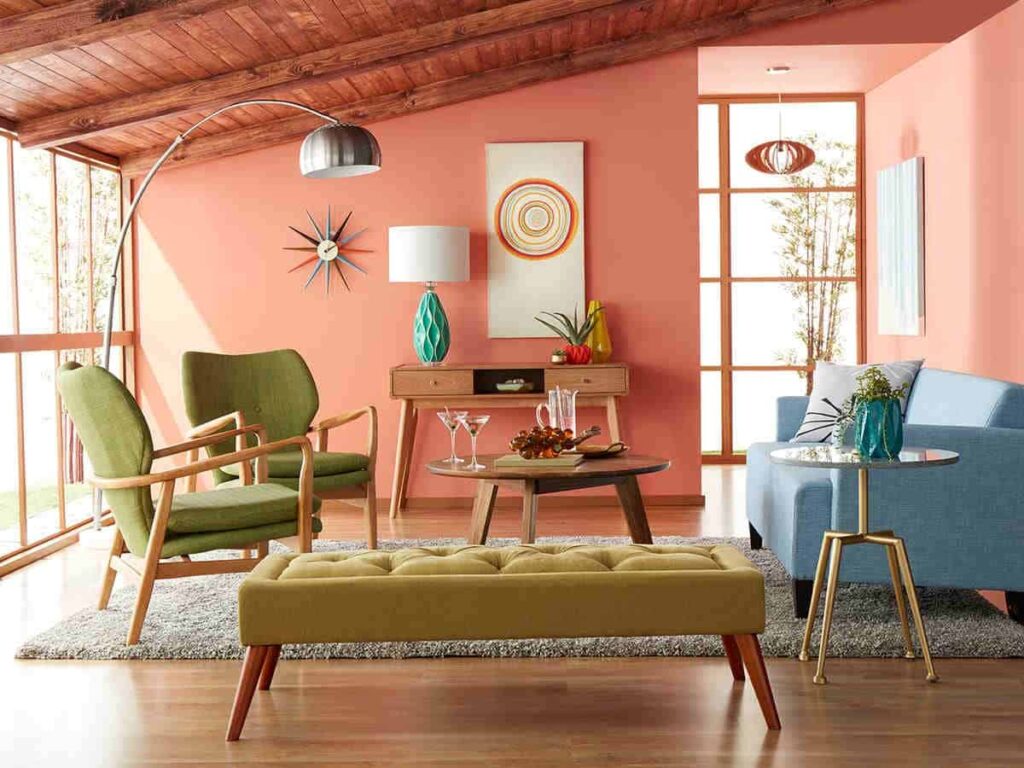
- Online Retailers: Many online retailers specialize in Mid-Century Modern furniture and accessories. Some popular options include Wayfair, Amazon, and Etsy.
- Vintage Stores and Antique Shops: Vintage stores and antique shops are great places to find authentic Mid-Century Modern pieces. Be prepared to do some hunting, but you may find some real treasures.
- Flea Markets and Estate Sales: Flea markets and estate sales are another great place to find vintage furniture and accessories. You may be able to score some amazing deals.
- Local Furniture Stores: Some local furniture stores carry Mid-Century Modern furniture and accessories. Check out your local stores to see what they have to offer.
- Consignment Shops: Consignment shops often have a rotating selection of gently used furniture and accessories, including Mid-Century Modern pieces.
Common Mistakes to Avoid When Designing a Mid-Century Modern Living Room
While designing a Mid-Century Modern living room can be a fun and creative process, there are a few common mistakes to avoid:

- Overcrowding the Space: One of the key principles of Mid-Century Modern design is simplicity and functionality. Avoid overcrowding the space with too much furniture or accessories.
- Using Too Many Colors: While pops of color are important, using too many colors can create a cluttered and overwhelming feeling. Stick to a neutral color palette with a few carefully chosen accent colors.
- Ignoring Functionality: Mid-Century Modern design is all about functionality. Choose furniture and accessories that are not only beautiful but also practical and comfortable.
- Failing to Incorporate Natural Materials: Natural materials are a key element of Mid-Century Modern design. Incorporate wood, metal, leather, and wool into your living room design.
- Neglecting Natural Light: Mid-Century Modern design emphasizes the importance of natural light. Maximize the amount of natural light in your living room by using sheer curtains or blinds.
Maintaining Your Mid-Century Modern Living Room
Once you’ve created your dream Mid-Century Modern living room, it’s important to maintain it to keep it looking its best. Here are a few tips:
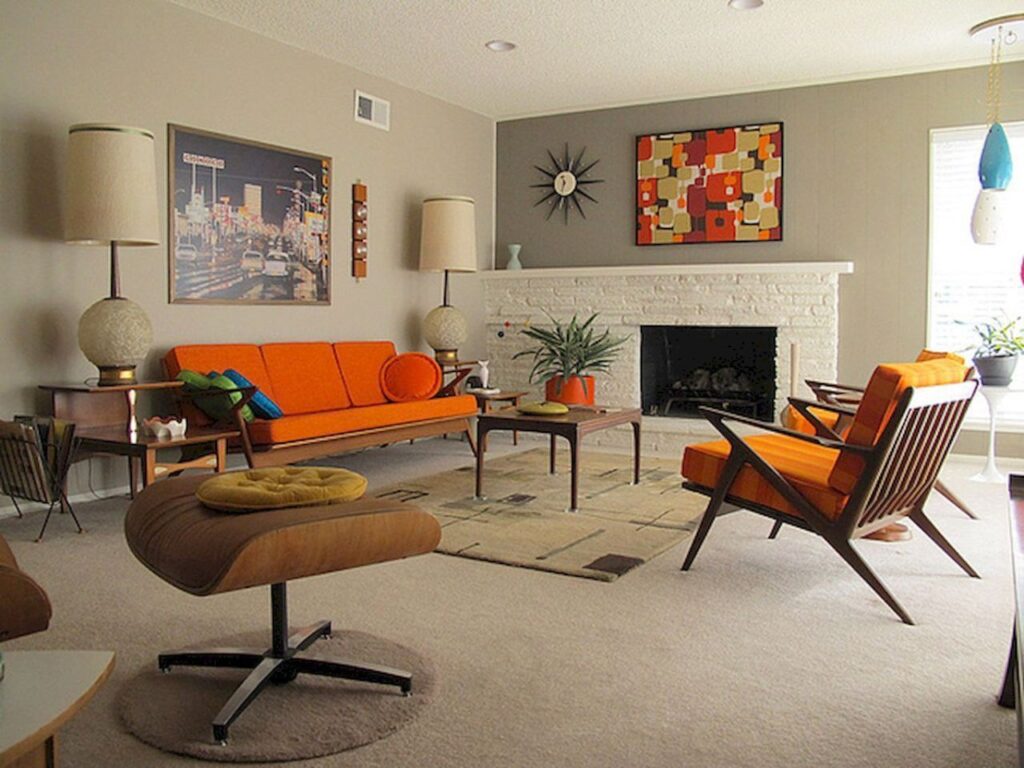
- Regularly Dust and Clean: Dust furniture and accessories regularly to prevent buildup. Clean spills and stains immediately to prevent them from setting in.
- Condition Leather Furniture: Leather furniture requires regular conditioning to keep it supple and prevent cracking. Use a leather conditioner every few months to keep your leather furniture looking its best.
- Protect Wood Furniture from Scratches: Wood furniture is susceptible to scratches. Use coasters and placemats to protect your wood furniture from scratches and water rings.
- Rotate Cushions Regularly: Rotate cushions on sofas and chairs regularly to prevent uneven wear.
- Vacuum Regularly: Vacuum carpets and rugs regularly to remove dirt and debris.
The Enduring Legacy of Mid-Century Modern Design
The Mid-Century Modern aesthetic continues to resonate with homeowners today because of its timeless appeal, its emphasis on functionality, and its connection to nature. It’s a style that is both stylish and comfortable, making it perfect for modern living. By understanding the key elements of Mid-Century Modern design and applying them thoughtfully to your space, you can create a living room that is both beautiful and functional.
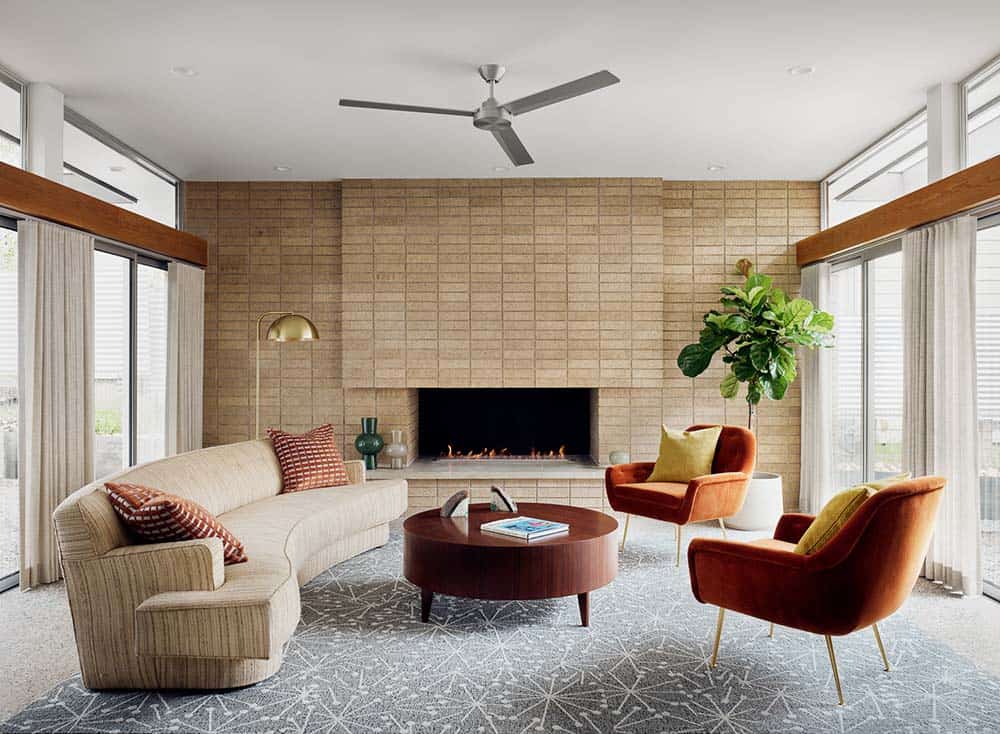
So, embrace the clean lines, the natural materials, and the pops of color. Create a space that reflects your personal style and celebrates the enduring legacy of Mid-Century Modern design. Your dream living room awaits!
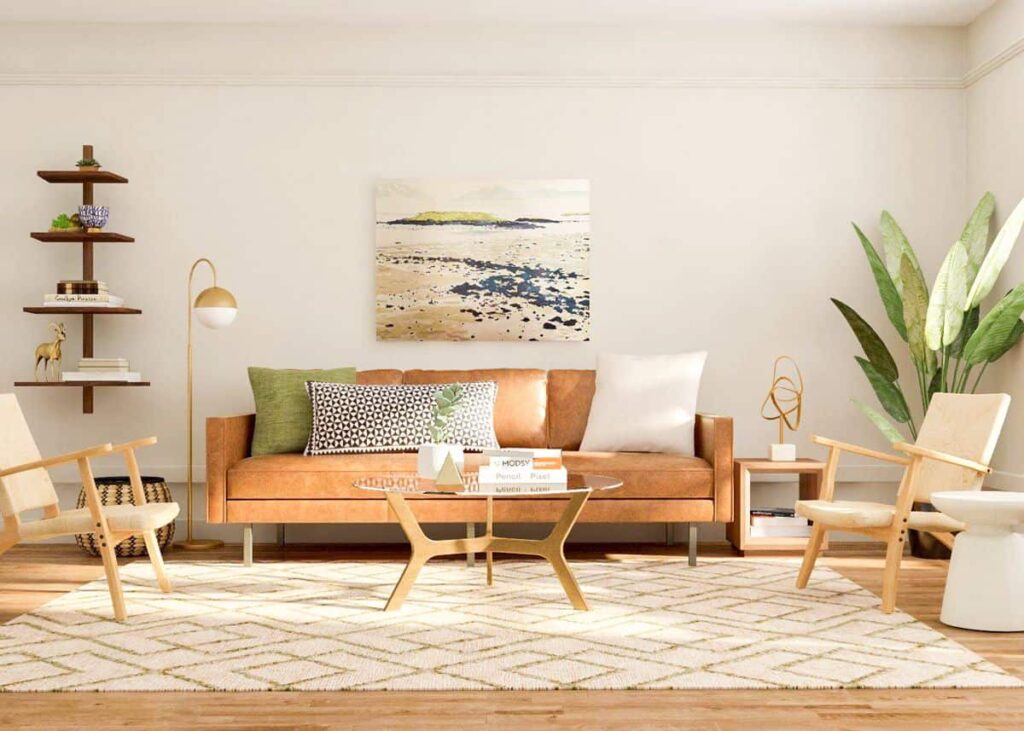
 Nimila
Nimila
